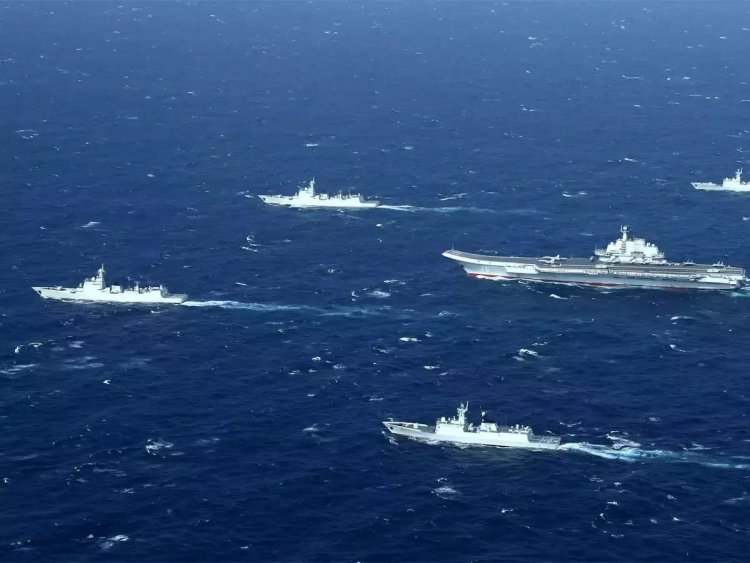South China Sea: Aggressive Plans Concern for India
STORIES, ANALYSES, EXPERT VIEWS

The South China Sea is once again becoming a hotspot of regional as well as international conflicts and this may have an adverse impact for India’s trade through the region.
The South China Sea, writes Dipanjan Roy Chaudhury (Diplomatic Editor at The Economic Times) “is crucial from commercial and military points of view. In such a scenario, China’s imperious actions would aggravate the clashes in the South China Sea, drawing major world powers into the conflict, according to persons familiar with the South China Sea dynamics.”
Response to aggressive moves by China
The Philippines: In a recent case of aggressiveness, a Chinese ship aimed a ‘military grade’ laser at a Filipino vessel, blinding its crew. The Philippines, which is seeking to expand its security with India, called Chinese action a ‘dangerous manoeuvre’.
The Philippines has signed a defence deal with Japan to improve its maritime capabilities and is mulling joining the US-led ‘integrated deterrence strategy’ against China.
Vietnam: Vietnam has conducted dredging and landfill work in the South China Sea, especially in the highly contested Spratly Islands. Satellite imagery carried out by Washington-based Centre for Strategic and International Studies (CSIS) showed the landfill work in the Spratly Islands by Vietnam is close to 3,200 acres, which is almost equal to similar work done by China. ‘It represents a major move toward reinforcing Vietnam’s position in the Spratlys,’ reads a CSIS report.
Indonesia: Two months ago, Vietnam and Indonesia finalised the boundaries of their exclusive economic zones in the South China Sea, defying China’s objections and conducted submarine warfare exercise with India this month. In 2022, Indonesia even invited Quad security dialogue members—the US, Japan, Australia and India— for the first time in its annual military exercise Super Garuda Shield. Indonesia is getting ready to take on China’s growing assertiveness.
Indonesia has started working on its $3 billion offshore gas project near the Natuna Islands, which China claims is its territory.
Malaysia: While Malaysia’s traditional approach in the South China Sea remained quiet and calculated, now demands are growing for the government to take an unequivocal and tough stand against China’s growing assertion, according to experts who closely monitor Chinese policy. Malaysia has also strengthened its ties with Japan to counter China.
US and Australia increasing their presence: The US and Australia too are increasing their presence in the Indo-Pacific region. The US is holding drills in the South China Sea, where China has already built artificial islands, missile bases, and even supermarkets for defence personnel.
Experts claim the Asean states are becoming far less accommodating of Beijing than they were earlier. ‘China's becoming more aggressive, more assertive, and so some Asean states are beginning to push back,’ said Malcolm Davis, senior analyst at the Australian Strategic Policy Institute.
















